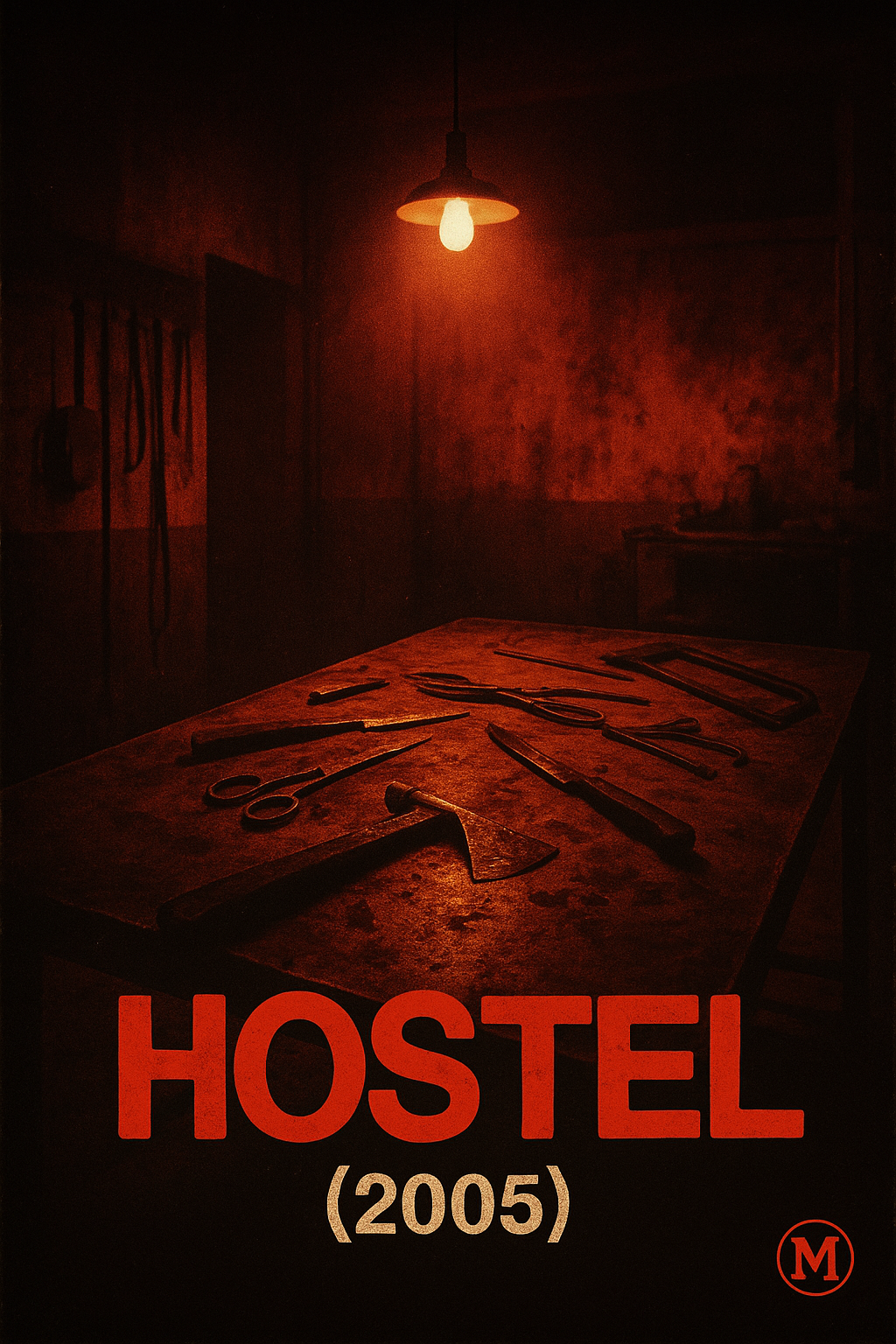Eli Roth’s Hostel arrived like a cinematic dare—part backpacker fantasy, part industrial nightmare. Marketed by Quentin Tarantino as “the movie that will make you afraid to travel,” it became a cultural flashpoint, blamed for popularizing so-called “torture porn.” But nearly twenty years later, Hostel reads not as exploitation, but as confrontation—a mirror held up to post-9/11 paranoia, American privilege, and the commodification of fear.
“They don’t want you for sex—they want you to die.” The trailer that shocked audiences in 2005.
The Allure and the Trap
Roth begins in daylight. Youth, money, and lust drive the plot before any blade appears. Three friends—Paxton, Josh, and Óli—drift through Amsterdam and Slovakia in search of cheap thrills and easy pleasure. What Hostel captures so well is the arrogance of the traveler who mistakes the world for an amusement park. When the film’s tone turns, the audience realizes the journey wasn’t an adventure—it was an audition.
The Birth of “Torture Porn”
Critics coined the term as insult, but it misunderstands the project. Roth weaponizes gore not as titillation but recoil—every scream indicts both victim and viewer. The violence feels procedural, transactional; each body has a price tag. In the mid-2000s, amid wars televised in real time, Hostel translated global desensitization into narrative form. It forced audiences to ask whether watching suffering—even fictional—could ever again be innocent.
Capitalism as Carnage
At its core, Hostel is about buying and selling power. We learn that the slaughterhouse operates as a private club where the wealthy pay to torture the poor. It’s globalization turned literal—pain outsourced, privilege monetized. Roth’s execution is deliberately crude, as if the film itself were an object sold on the black market it depicts. It’s a thematic cousin to American Psycho and The Purge, both fascinated by the moral collapse behind the transaction.
Legacy and Influence
Hostel’s influence rippled through horror for a decade. It opened the door for films like Saw II, The Collector, and The Human Centipede, but also provoked a backlash that pushed the genre toward elevated psychological horror in the 2010s. Today it stands as a relic and a warning—a film that asks how much pain we’re willing to consume in the name of entertainment. Love it or loathe it, Hostel made horror uncomfortably self-aware, and that may be its most lasting scar.
